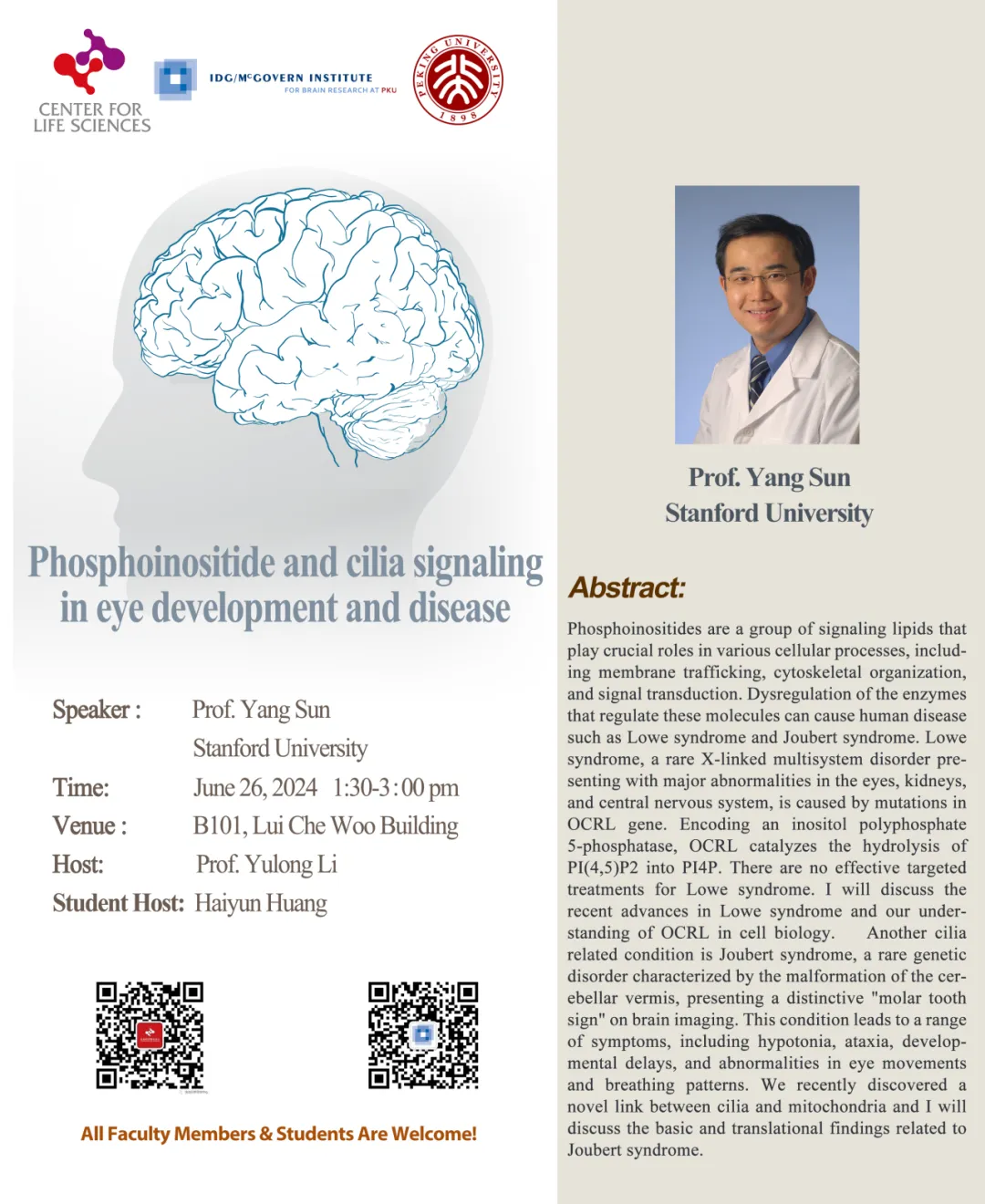
Speaker: Prof. Yang Sun, School of Medicine, Stanford University
Time: 13:30-15:00 p.m., Jun 26, 2024, GMT+8
Venue: B101,Lui Che Woo Building, PKU
Abstract:
Phosphoinositides are a group of signaling lipids that play crucial roles in various cellular processes, including membrane trafficking, cytoskeletal organization, and signal transduction. Dysregulation of the enzymes that regulate these molecules can cause human disease such as Lowe syndrome and Joubert syndrome. Lowe syndrome, a rare X-linked multisystem disorder presenting with major abnormalities in the eyes, kidneys, and central nervous system, is caused by mutations in OCRL gene. Encoding an inositol polyphosphate 5-phosphatase, OCRL catalyzes the hydrolysis of PI(4,5)P2 into PI4P. There are no effective targeted treatments for Lowe syndrome. I will discuss the recent advances in Lowe syndrome and our understanding of OCRL in cell biology. Another cilia related condition is Joubert syndrome, a rare genetic disorder characterized by the malformation of the cerebellar vermis, presenting a distinctive "molar tooth sign" on brain imaging. This condition leads to a range of symptoms, including hypotonia, ataxia, developmental delays, and abnormalities in eye movements and breathing patterns. We recently discovered a novel link between cilia and mitochondria and I will discuss the basic and translational findings related to Joubert syndrome.
Source: McGovern Institute for Brain Research at PKU
